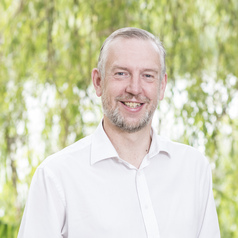
Patrick Sears
Senior Lecturer in Chemistry and Forensic Analysis, University of Surrey
Dr Patrick Sears is a Senior Lecturer of Chemistry and Forensic analysis at the University of Surrey in the School of Chemistry and Chemical Engineering. He teaches forensic analysis across all years and supervises placements, final year projects and PhD students. His research expertise and background include developing analytical chemistry solutions for complex problems and understanding how analytical systems can be broken down to improve precision and accuracy. He collaborates with a number of companies including AstraZeneca, LGC and Waters. Having joined the university in 2018, Patrick previously worked at the defence science and technology laboratory (DSTL).
Less ![]()
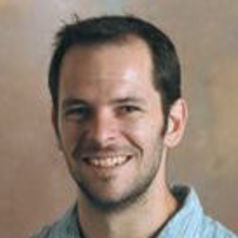
Patrick Shafto
I am Henry Rutgers Term Chair in Data Science and Associate Professor in the Department of Mathematics and Computer Science at Rutgers - Newark. I am also affiliated with the Institute for Data Science, Learning and Applications (I-DSLA) and have appointments in Psychology, Rutgers Business School, and the Center for Molecular and Behavioral Neuroscience (CMBN) at Rutgers.
I lead the CoDaS lab. The goal of my research is to bridge Cognitive Science and Data Science by understanding human perception and cognition and developing more cognitively natural machine learning and data science tools.
Less ![]()

Patrick Ssebugere
Senior lecturer, Department of Chemistry, Makerere University
Patrick Ssebugere is a scientist in the Department of Chemistry at Makerere University in Uganda (East Africa). He received his DrSc in green chemical technology from Lappeenranta University of Technology, Finland, in 2015. In 2019, he undertook postdoctoral studies at Helmholtz Zentrum München, German Research Center for Environmental Health in Germany. In 2022, he was an Alexander von Humboldt guest scientist at Helmholtz Centre for Environmental Research – UFZ in Leipzig, Germany.
Less ![]()
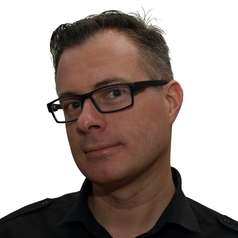
Patrick Stokes
I'm a philosopher at Deakin University, and have previously held research fellowships in the UK (I'm an honorary Research Fellow at the University of Hertfordshire), Denmark and the US.
My areas of research include personal identity, philosophy of death and remembrance, 19th and 20th century European philosophy (especially the work of Søren Kierkegaard) and moral psychology.
As well as The Conversation, I'm a regular contributor to New Philosopher and pop up from time to time on The Drum, 774 Melbourne, 3RRR, Radio National, The Age, and other places.
Less ![]()
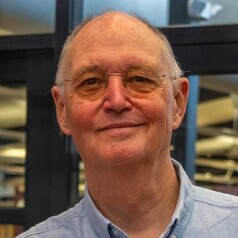
Patrick Sullivan1
Professor, University of Notre Dame Australia
I am a political anthropologist whose work for Aboriginal organisations since the early 1980s involves practical research and advice on issues of land use and distribution, community control of community development, and governance institutions at the local and regional levels. For two separate periods I was the Senior Anthropologist for the Kimberley Land Council, formulating anthropological and policy advice on local, national and international projects, as well as native title cases. From 2002 to 2012 I was a Research Fellow, and Senior Research Fellow, in Indigenous Regional Organisation, Governance and Public Policy at the Australian Institute of Aboriginal and Torres Strait Islander Studies. I concentrated my research on public policy approaches to Indigenous affairs. I have authored numerous scholarly articles and practical reports, and the book Belonging Together: Dealing with the Politics of Disenchantment in Australian Indigenous Policy (Aboriginal Studies Press, Canberra 2011). I am currently an Honorary Professor at the Crawford School for Public Policy (ANU), and a Professor at the Nulungu Research Institute, University of Notre Dame Australia, Broome. I led the ARC-funded project Reciprocal Accountability and Public Value in Aboriginal Organisations.
Less ![]()
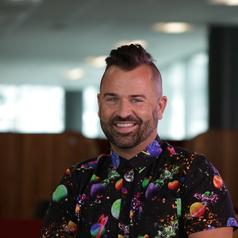
Patrick Usmar
Lecturer in Critical Media Literacies, Auckland University of Technology
Moving from making media messages to researching and teaching how best to understand them, Patrick is passionate about continually improving media literacy skills in adults and young people alike. Patrick has worked in media and communications since 1998 and has been a teaching academic at AUT University since 2013. In his early career he worked as a media planner buyer, keeping a close eye on the media landscape, changes in audience attitudes and the language of communications. As his career matured, he took these skills into innovative communication areas such as television production and public relations. His doctoral research investigates how media literacy skills empower young people to understand the media as it relates to their experience of the social world— especially those issues related to identity, power, gender, class and race inequities.
Less ![]()

Patrick Wright
Associate Lecturer in Arts and Humanities, Open University, The Open University
Patrick Wright received his PhD in English from the University of Manchester in 2007. He also holds two MAs, in English and in Creative Writing, from the same institution.
His AHRC-funded doctoral thesis focused on the sublime within a broader discourse on the sacred, making use of feminist and psychoanalytic theory. This project was supervised by Professor Terry Eagleton and Dr Anke Bernau.
He has been shortlisted for the Bridport Prize, and he has a pamphlet, Nullaby, published by Eyewear. His full debut collection, Shadows on the Ceiling, will be published in 2020 by the same publisher.
His poems have been published in several anthologies and magazines, most recently Agenda, The Reader, Iota, The High Window, and Wasafiri.
He is studying towards a second PhD in Creative Writing, focusing on innovative ekphrastic responses to modern art, supervised by Siobhan Campbell and Jane Yeh.
Research interests include literature from 1800 to the present, modern and contemporary poetry, art history, place writing, and issues of genre and translation.
He teaches on A111, A105, A233, and A335, and is a Fellow of the Higher Education Academy.
He has also taught English, at the University of Manchester and the University of Salford, and Art History and Visual Culture, at the Manchester Metropolitan University.
He is especially interested to hear from students looking to pursue literature or creative writing routes.
Email address: [email protected]
Less ![]()

Patrick Effiong Ben
Doctoral Researcher in Applied Ethics and African Philosophy, University of Manchester
Less ![]()

Patrick F Walsh
Professor Intelligence and Security Studies, Charles Sturt University
Professor Patrick F Walsh is a Professor, Intelligence and Security studies at the Australian Graduate School of Policing and Security, Charles Sturt University, Australia. He consults to government and his research focuses on a range of intelligence capability issues including governance, leadership, intelligence and ethics, biosecurity, health security and cyber. He is the author of Intelligence and Intelligence Analysis, Routledge, UK 2011; Intelligence, Biosecurity and Bioterrorism, Palgrave Macmillan, UK, 2018; and Intelligence Leadership and Governance. Building Effective Intelligence Communities in the 21st Century, Routledge, 2020
Less ![]()
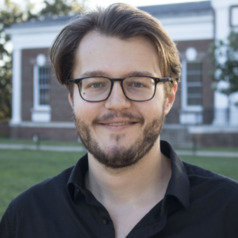
Patrick I. Hancock
Postdoctoral fellow, University of Virginia
Patrick I. Hancock is a Postdoctoral Fellow at the University of Virginia School of Engineering and Applied Sciences. His research focuses on developing collaborative and behaviorally informed engineering practices that facilitate processes and generate outcomes that meet community definitions of social justice. Patrick’s work has appeared in Nature Sustainability, American Psychologist and iScience.
Less ![]()
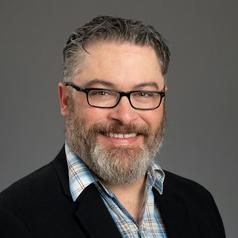
Patrick R. Lowenthal
Professor of Educational Technology, Boise State University
Patrick R. Lowenthal is a Professor of Educational Technology at Boise State University. He specializes in designing and developing online learning environments. His research focuses on how people communicate using emerging technologies—with a specific focus on issues of presence, identity, and community--in online learning environments.
Less ![]()
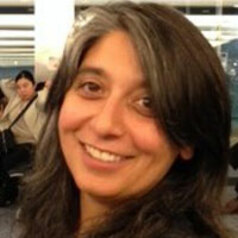
Patrizia Gentile
Professor, Sexuality Studies/Human Rights & Social Justice, Carleton University
Research Interests: Cultural/gender history; history of sexuality; history and theory of the body; beauty contests; national security; queer theory
Cross-appointments: Institute of Interdisciplinary Studies/Feminist Institute of Social Transformation
Patrizia Gentile, Queen of the Maple Leaf: Beauty Contests and Settler Femininity (UBC Press,October 2020).
(Queen of the Maple of Leaf is nominated for the Canadian Historical Association Best Scholarly Book in Canadian History Prize 2021.)
Gary Kinsman and Patrizia Gentile. The Canadian War on Queers: National Security as Sexual Regulation. (Vancouver: University of British Columbia Press, 2010).
Patrizia Gentile, Gary Kinsman, and L.Pauline Rankin, eds. We Still Demand!: Redefining Resistance in Sex and Gender Struggles. (Vancouver: University of British Columbia Press, 2016)
Patrizia Gentile and Jane Nicholas, eds. Contesting Bodies and Nation in Canadian History (Toronto: University of Toronto Press, 2014)
Less ![]()
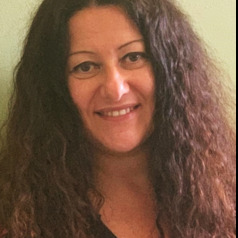
Patrizia Quattrocchi
Professor of Cultural Anthropology, Università degli Studi di Udine
Patrizia Quattrocchi is a Professor in cultural and medical anthropology at the University of Udine, Italy. Her research interests include reproductive health and policies, with a particular focus on the differing responses to the overmedicalisation of birth, depending on the context. She conducted ethnographic research on indigenous Lenca midwifery in Honduras (1998) and in Mayan communities in Mexico (2000–2009), out-of-hospital birth in Italy, Spain, and the Netherlands (2010–2015), and obstetric violence in Argentina (2016–2018). She was twice awarded a Marie Sklodowska Curie Grant by the European Union (7FP and Horizon2020). As a result of the second project, titled “Obstetric violence. A new goal for research, policies and human rights on childbirth”, she is the coordinator of the Platform of Obstetric Violence, and continues her research on the topic in Latin America and in Europe. A new project on obstetric violence has recently been funded by the Marie Sklodowska Curie Action programme (HORIZON-MSCA-2022-Staff Exchange, 2024-2027). As the coordinator of the project (International Platform on Obstetric Violence-IPOV-RESPECTFULCARE), Professor Quattrocchi led a large international partnership made up of 19 institutions from 6 European countries and 3 Latin American countries, and a team of 40 experts, including researchers, professors, health professionals and members of civil society organisations (https://respectfulcare.eu ). She is also the author of the study “Obstetric violence in the European Union: Situational analysis and policy recommendations”, funded by the European Commission (2024).
Less ![]()

Patrycja Klusak
Affiliated Researcher, Bennett Institute of Public Policy, University of Cambridge and Associate Professor in Banking and Finance, University of East Anglia
Dr Patrycja Klusak is an Associate Professor in Banking and Finance at University of East Anglia and an Affiliated Researcher at Bennett Institute for Public Policy at the University of Cambridge.
Her research investigates the behaviour and regulation of credit ratings agencies (CRAs), and their effects on financial systems. Her work evaluates the extent to which regulations achieve their aims, or whether they lead to unintended consequences. Her research also examines the relationship between firms’ financial flexibility and their ratings, the extent of herding behaviour by CRAs, potential conflicts of interests in the CRA industry, and the effect of environmental, social, and governance (ESG) metrics on firm ratings. Her interdisciplinary work combines climate science and environmental economics with her expertise in empirical banking and applied econometrics to investigate how climate change risks have and could affect sovereign ratings.
Dr Klusak holds a PhD in Accounting and Finance and a BA in Banking and Finance from Bangor University, and an MPhil in Real Estate Finance at Cambridge University.
Less ![]()
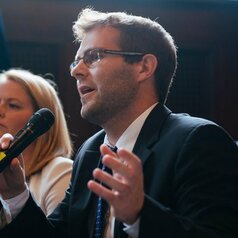
Patryk Labuda
Research Fellow, University of Zurich
Patryk I. Labuda is a Swiss National Science Foundation Fellow at the University of Zurich. A former practitioner with experience in central and north Africa, Patryk draws on interdisciplinary methods to study how international institutions interpret legal norms to achieve public policy aims. He specialises in international (criminal) law, human rights, and peace and security studies. He has 14 years of work and research experience in central and north Africa, with a regional focus on the politics of the Democratic Republic of Congo, Central African Republic, Sudan and South Sudan. His first book ‘International Criminal Tribunals and Domestic Accountability: In the Court's Shadow' (OUP) was published in 2023. Patryk holds a PhD from the Geneva Graduate Institute of International and Development Studies.
Less ![]()
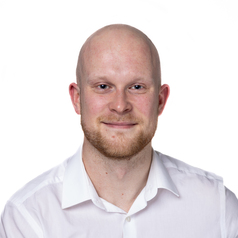
Patryk Makowski
PhD Candidate, Technological University of the Shannon
I am a devoted scholar with a strong interest in leadership dynamics and work behaviours, currently pursuing a PhD at the Technological University of the Shannon: Midland Midwest. My research, inspired by my Master's in General Business Studies and the global effects of the COVID-19 pandemic, focuses on the relationship between transformational leadership and work engagement in the context of remote work, encapsulating my dual commitment to personal growth and societal contribution.
Less ![]()
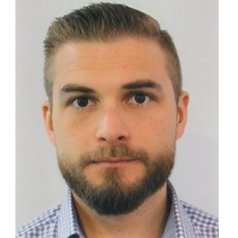
Patryk Szewczyk
Patryk is a security lecturer at Edith Cowan University and a member of the ECU Security Research Institute.
Less ![]()

Patti Shih
Research Fellow & Lecturer, University of Wollongong
I am Research Fellow at the Australian Centre for Health Engagement Evidence & Values (ACHEEV), and the Academic Program Director of the Bachelor with Honours Program at the School of Health & Society, University of Wollongong. I am a sociologist specialising in social and cultural aspects of healthcare and medicine. My current research focuses on public and consumer engagement in healthcare, and the implications of health technologies on medical overuse. I am currently developing new expertise and approaches in deliberative methods, co-design & co-research. I lecture in health policy, research methods, and justice and health.
Less ![]()
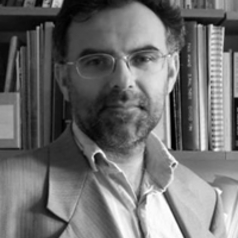
Paul Anand
I have held fellowships in Oxford and Cambridge Universities and am currently a Professor at the Open University, Research Associate at Oxford University and the London School of Economics.
My work stems from long standing interests in the foundations of decision sciences, used to be primarily normative, and have argued for the expansion of decision theory beyond older conceptions of rational choice, something that has, broadly speaking, taken place both in economics and philosophy. In recent years, I have been interested in the operationalisation of Sen’s capabilities approach to welfare economics and its use in debates about the measurement of progress.
Earlier work has been published in a variety of leading economics journals including The Economic Journal, Theory and Decision, Oxford Economic Papers, Economica, Journal of Health Economics, Annals of Operations Research and much of it is collected in my monograph Foundations of Rational Choice Under Risk published by Oxford University Press in 1993 (with reprints in 1995 and 2002). In addition, I have just edited and contributed to the Oxford University Press Handbook of Rational and Social Choice with Professor Prasanta Pattanaik (Riverside, University of California, USA) and Professor Clemens Puppe (Karlsruhe University, Germany) to be published in 2008. Work on capabilities and wellbeing is summarised in greater detail on the capabilities measurement project website.
I have also been interested in the interaction these theories and their development in policy contexts or experimental and survey based work. This work has been published in a wide variety of scientific journals including Science, Journal of Theoretical Politics, British Journal of Management, Social Theory and Practice, Social Indicators Research, Health Care Analysis and the Journal of Economic Psychology.
Having taught research methods at graduate level for five years and acted as a consultant researcher on economic statistics to the OECD and NAO my most recent work brings a these interests together with interests in the foundations of social choice. With about 25 colleagues, at the latest count, I have sought to demonstrate the extent to which the measurement of human capabilities is feasible along multiple dimensions and explore the techniques that can be applied to such measurements. This work has resulted in approximately a dozen publications and has been incorporated into research projects in Oxford, Glasgow and Buenos Aires.
Less ![]()
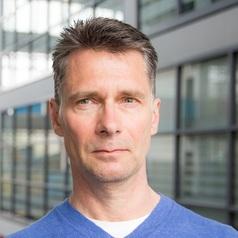
Paul Arnell
Reader in Law, Robert Gordon University
Dr Arnell has an interest in extradition, transnational criminal justice, criminal jurisdiction and human rights. He has published widely in those areas, including in the law journals International and Comparative Law Quarterly, the International Journal of Human Rights and the Criminal Law Forum and newspapers the Times, Scotsman and National.
Less ![]()
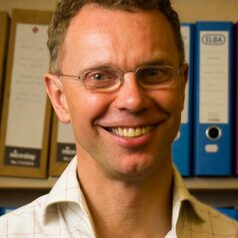
Paul Aveyard
Professor of Behavioural Medicine, University of Oxford
My research focuses on behavioural medicine. This is the integration of biological, psychological and sociological knowledge to prevent and treat disease and to aid rehabilitation. You can read more about our research on our team website here https://www.phc.ox.ac.uk/research/research-themes/health-behaviours-theme.
My work focuses on helping people change their behaviour, either to prevent serious disease, or as a treatment for that disease.
A lot of my work has examined interventions to help people stop or reduce their smoking and lately I have worked in helping people manage their weight if they have become obese.
People often use several drugs to help them stop smoking but our research suggested that combining these drugs does not help more than taking only one of them. Our research has shown that people who stop smoking put on a considerable amount of weight and we are investigating the best ways to prevent this weight gain but without harming the chance of stopping smoking.
One of our trials showed that people who were referred to commercial weight management providers lost more weight than people who tried to lose weight without support. However, people who went to their GP or practice nurse for support did no better than people trying without support. This result helped change government policy and local health organisations now contract with commercial weight providers. We have also shown that a brief 30-second behavioural intervention delivered by a clinician opportunistically can motivate a person to take up effective support and lose weight. Such brief interventions were highly acceptable to patients and easy for clinicians to deliver.
I work with several other organisations to improve health and healthcare. I am former president of the UK Society of Behavioural Medicine, a former trustee of the Association for the Study of Obesity, a member of the Society for Research on Nicotine and Tobacco. I am a senior editor of the journal Addiction and coordinating editor of the Cochrane Tobacco Addiction Group. I have worked on several NICE working groups and advised the Department of Health and NHS England on smoking and obesity.
I try to make my publications available to everyone. Please have a look for them here https://ora.ox.ac.uk/ or on researchgate.net.
I am an NIHR senior investigator.
Less ![]()
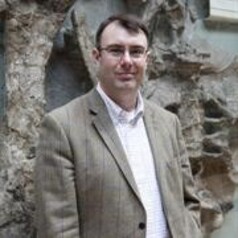
Paul Barrett
Individual Merit Researcher, Natural History Museum
My major research interests are centred on the evolutionary palaeobiology of dinosaurs and other extinct amniotes. In addition, I am involved in projects to investigate macroevolutionary mechanisms, the evolution of Mesozoic terrestrial ecosystems and potential biases in the fossil record. Research is concentrated in three main areas:
1. Pattern and process in macroevolution. Controls on dinosaur diversity through time; testing of plant–dinosaur co-evolutionary scenarios; clade-clade interactions; correlated progression; influence of the rock record, collection bias and climate on fossil reptile diversity.
2. Functional morphology, palaeobiology and palaeoecology of herbivorous amniotes, principally sauropodomorph and ornithischian dinosaurs.
3. Taxonomic, systematic and faunal revisions of dinosaurs and other extinct reptiles (including lizards, plesiosaurs and ichthyosaurs).
Less ![]()
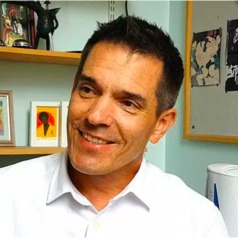
Paul Bowman
Professor of Cultural Studies, Cardiff University
BA, English; MA, Cultural Studies; PhD, Cultural Studies (cultural theory, political theory, deconstruction).
Author of many books on cultural theory, popular culture, film and martial arts; founder and director of The Martial Arts Studies Research Network, and co-editor of the journal Martial Arts Studies.
Most recent book: The Invention of Martial Arts: Popular Culture Between Asia and America (Oxford University Press, 2021).
Less ![]()
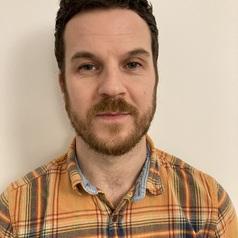
Paul Chambers
PhD Candidate in Creative Writing, University of Bristol
Paul Chambers is an award-winning poet and a PhD candidate in Creative Writing at the University of Bristol. His creative practice centres on haiku poetry and his research focuses on poetic negative space as a vehicle for contemplative ecology. He also holds an MA in Screenwriting from the London Film School.
Paul has contributed creative and critical material to the Times Literary Supplement, the Washington Post, the BBC, NHK World, Wales Arts Review, and the national Japanese newspapers, the Mainichi and the Asahi Shimbun. He is also a regular Arts critic for BBC Radio Wales.
Paul's individual poems have won the Museum of Haiku Literature Award, the NHK Haiku Masters Award, and the Golden Triangle Haiku Award. His 2021 collection, The Dry Bones won the Haiku Foundation’s Touchstone Distinguished Book Award – the most prestigious prize in the field of English-language haiku.
Less ![]()
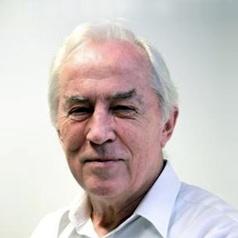
Paul Compton
Emeritus professor in Computer Science and Engineering, UNSW Sydney
I worked at the Garvan Insist of Medical Research for 20 years, initially as biophysicist but then as a computer scientist. At the Garvan I worked on one of the first medical expert systems to go into routine use. In 1990 I moved to Computer Science and Engineering at UNSW, where my research focus was mainly on better ways to build expert or knowledge-based systems and resulted in a family of techniques known as Ripple-Down Rules. This work was supported by a number of ARC grants, and has been successfully commercialised by Pacific Knowledge Systems (now Beamtree) and other companies internationally. I was one of the founders of PKS, but am not involved with Beamtree. I was also the Associate Dean (research) for the Faculty of Engineering at UNSW for 3 years and and head or acting head of the School of Computer Science and Engineering for 12 years. I retired in 2010 and am currently an advisor to Rich Data Corporation.
Less ![]()
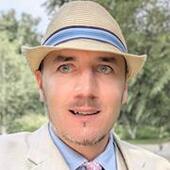
Paul Cuffe
Assistant Professor, School of Electrical and Electronic Engineering, University College Dublin
Less ![]()
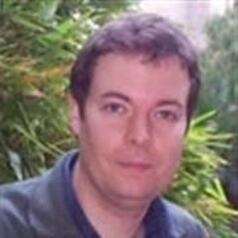
Paul Delfabbro
Professor, School of Psychology, University of Adelaide
I have worked at the University of Adelaide since 2001 and I lecture in the areas of learning theory as well as methodology and statistics. My principal research interests are in the area of behavioural addictions (gambling and technology) as well as child protection and out-of-home care. Most of my research work involves statistical analysis of cross-sectional and longitudinal surveys and experimental studies.
Less ![]()
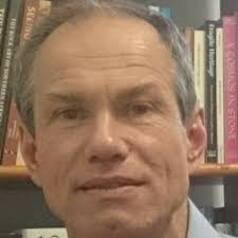
Paul den Hoed
Senior Lecturer, School of Chemical and Metallurgical Engineering, University of the Witwatersrand
Although trained in chemical engineering, I am practised in pyrometallurgy and in chemistry at high temperatures, mostly in the chemical thermodynamics and kinetics of gas-solid reactions (oxidation, reduction and chlorination of oxide and sulfide minerals). I have also worked in teams testing and designing novel processes.
My work in R&D over the last three decades has fostered an invaluable set of skills. I combine a grasp of principles and techniques in "process mineralogy" and chemistry with an understanding of processes in chemical and metallurgical engineering. I retain a practised hand in the laboratory. I communicate clearly in English through writing, speaking and discussion. I have mentored students and colleagues in the craft of research: in critical thinking around process fundamentals and theory; in developing arguments; in marshaling data and evaluating hypotheses; and in communicating.
Less ![]()
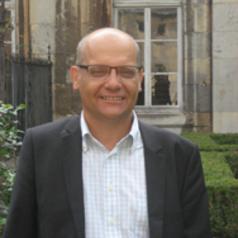
Paul Dietschy
Professeur d'histoire contemporaine, Directeur du Centre Lucien Febvre (EA 2273), Université de Franche-Comté – UBFC
Ancien élève de l'École Normale Supérieure de Fontenay-Saint-Cloud, agrégé et docteur en histoire, Paul Dietschy est professeur d'histoire contemporaine et directeur du Centre Lucien Febvre à l'université de Bourgogne-France-Comté. Chercheur associé au Centre d'histoire de Sciences Po, il est spécialiste de l'histoire du sport et du football et de l'Italie contemporaine. Parmi ses publications : Histoire du football, Paris, Tempus, 2016, Le sport et la Grande Guerre, Paris, Chistera, 2018 et avec Stefano Pivato, Storia dello sport in Italia, Bologne, il mulino, 2019.
Less ![]()
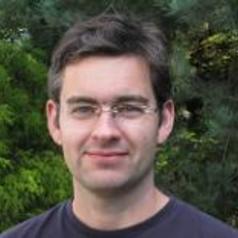
Paul Dimeo
Senior Lecturer in Sport, University of Stirling
My main areas of research interest and expertise relate to drug use in sport and anti-doping policy.
I was a visiting Fulbright Commission Scholar at the University of Texas, Austin from September to December 2012, working on a project entitled: ‘The Doping of Elite Athletes in International Sport and the Politics of the Cold War, 1950-1990'.
I am the co-ordinator of SPS9SP Sports Policy. I also contribute to SPS9R7 Readings in Sports Studies, SPS9D8 Sports Dissertation and dissertation supervision.
My major research interest is doping in sport and the development of anti-doping policies. This has led to several publications including the prize-winning monograph A History of Drug Use in Sport, 1876-1976: Beyond Good and Evil (Routledge, 2007). I have recently completed three projects funded by the World Anti-Doping Agency. I have published on other policy issues including racism in sport, the migration of football players, tourism, and hosting major sports events.
Less ![]()
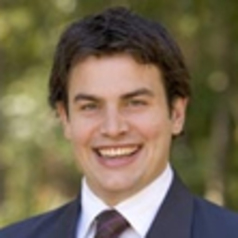
Paul Docherty
Paul's research interests lie in empirical finance and capital markets, focusing primarily on asset pricing. His research has been published in journals including Accounting and Finance, Applied Economics and The Australian Journal of Management.
He is the chief investigator for a large external grant that was awarded by Platypus Asset Management in 2011 and continues to work collaboratively with professionals in the funds management industry.
Less ![]()
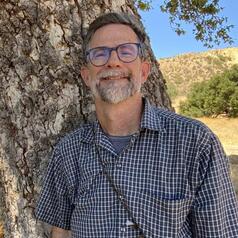
Paul Draus
Professor of Sociology; Director, Master of Science in Criminology and Criminal Justice, University of Michigan-Dearborn
From 1992 until 2000, I was a public health field worker, specializing in tuberculosis control, first in New York City and then in Chicago. I earned my PhD from Loyola University Chicago in 2001, and wrote my first book based on my dissertation field work, Consumed in the City: Observing Tuberculosis at Century’s End (Temple University Press, 2004).
At UM-Dearborn, I teach a variety of classes, including Medical Sociology, Urban Sociology, Sociological Theory, Deviant Behavior, Restorative Justice and Inside-Out Prison Exchange. I have published numerous articles on substance abuse, from crack cocaine in small towns in Ohio to heroin in the city of Detroit, and on urban green space. Lately I have been spending a lot of time in alleys.
Less ![]()
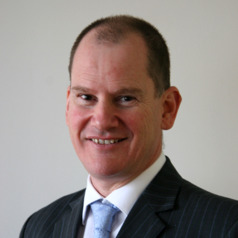
Paul Dugdale
Director ANU Centre for Health Stewardship, Australian National University
Paul Dugdale is a public health physician with experience as a policy adviser, senior executive, juristictional chief health officer and hospital staff specialist.
He currently consults as Principal Medical Advisor for Aspen Medical Advisory Services Pty Ltd.
His clinical practice has been in chronic disease management including obesity medicine.
He is Clinical Professor of Public Health in the ANU School of Medicine and Psychology, and Director of the ANU Centre for Health Stewardship in the College of Health and Medicine.
He was previously Chair of the Australian Healthcare and Hospitals Association and is currently President of the Friends of the School of Music at AN
Less ![]()
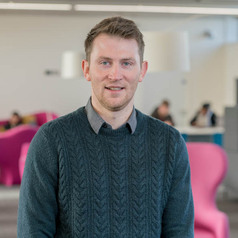
Paul Felton
Senior Lecturer in Biomechanics in the School of Science and Technology, Nottingham Trent University
Paul Felton is a Senior Lecturer in Biomechanics in the School of Science and Technology. He has authored or co-authored world-leading, peer-reviewed research, has contributed to written-press and media features, and is the Principal Investigator or Co-Investigator for multiple PhD researchers.
Paul is one of cricket's most prominent applied researchers focusing on the technical characteristics linked to performance and injury. His main research interest lay within optimising individual sporting performance and has utilised predictive computer simulation models with industry collaborations including the England & Wales Cricket Board and the English Institute of Sport.
Paul also contributes to the teaching on the Sport and Exercise Science, Sport Science and Coaching, and Sport Science and Mathematics courses. He is the module leader of Applied Human Movement Science for Sport, and contributes to the following modules: Introduction to Human Movement Science, Analysis of Human Movement, Applied Sport Science, as well as supervising undergraduate and postgraduate projects.
Less ![]()
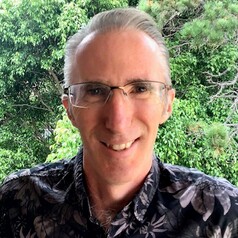
Paul Ginns
Associate Professor in Educational Psychology, University of Sydney
Dr Paul Ginns is Associate Professor in Educational Psychology in the Sydney School of Education and Social Work at The University of Sydney, teaching foundational and elective educational psychology units across undergraduate and postgraduate education degrees. His research focuses on educational implications of human cognitive architecture and embodied cognition, motivation and engagement, and creativity.
Less ![]()
- Market Data





















